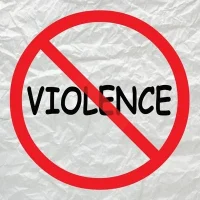Deadline: 19-Nov-23
The International Centre for Migration Policy Development (ICMPD) has announced a call for proposals to support engagement of non-profit organizations working in the border areas of the Central Asian states in implementation of initiatives for the benefit of the border communities.
The Border Management Programme in Central Asia Phase 10 (BOMCA 10) is a long-lasting leading initiative funded by the European Union in the region. It is implemented by the consortium of border management institutions of the selected EU Member States and ICMPD led by the State Border Guard for the Republic of Latvia.
The 2nd call for proposals is released as part of the BOMCA 10 Component 4 aimed at the improvement of cross-border cooperation for better living conditions in border areas through local economic development, with a focus on human rights, gender equality and support to vulnerable groups.
Objectives
- The specific objective of the call for proposals is to support engagement of non-profit organizations working in the border regions within Central Asia in implementation of initiatives for the benefit of the Central Asian border communities by awarding them with funding as established in this call for proposals.
Priorities
- The following priority areas are established: Actions targeted at bringing assistance and benefit to the population residing in the Central Asian border regions through socially focused initiatives and ultimately, improving the quality of their daily lives, including, but not limited to the following areas:
- Research and analysis in the area of migration, cross-border and related areas;
- Awareness raising on irregular migration and trafficking in human beings’ prevention, as well as on issues of concern for the population affected by migration;
- Assistance to vulnerable groups of the population affected by migration and border proximity (in particular to children and women left behind by migrants);
- Support to entrepreneurship, including social entrepreneurship initiatives, of all groups of the population and among women, as a special category.
- Facilitation of CSOs and NGOs working in the border regions networks and forums for discussing and cooperating in migration and cross border areas.
Funding Information
- The overall indicative amount made available under this call for proposals is EUR 660 000 (will be distributed among all selected applicants. The contracting authority reserves the right not to award all available funds.
- The requested grant amount for actions shall be:
- Minimum EUR 45,000;
- Maximum EUR 55,000 in case of a sole Applicant i.e. single organisation applying for a grant;
- Maximum EUR 60,000 in case Lead Applicant is applying together with one or more coapplicants.
Expected Outcomes
- The expected outcomes of the call for proposals include:
- Award and successful implementation of the non-profit organizations actions targeting the border areas of the Central Asian states that have contributed to the improvement of living conditions of the border areas communities;
- Participation in the call for proposals procedure, subsequent capacity development on project implementation modalities for the non-profit organizations as well as practical implementation of action under close monitoring of the BOMCA 10 team, have further strengthened the capacities of these organisations in project development and implementation;
- Implemented actions have contributed to the reinforcement of a dialogue between the nonprofit organizations and local authorities in the Central Asian region.
Eligible Activities
- Organising and conducting research activities on migration and cross-border processes in the Central Asian region, as well as on the effects of migration processes on the border areas communities.
- Developing and conducting awareness raising campaigns aimed at mitigating the risks of irregular migration and promoting safe and ordinary migration among the border areas communities, as well as targeting the groups of population affected by migration.
- Providing assistance to vulnerable groups of population residing in the border areas, especially women and children left behind by migration.
- Providing assistance to the population residing in the border areas in developing their entrepreneurship skills, in particular targeting social entrepreneurship and women-led initiatives.
- Organising capacity development activities for stakeholders to raise their awareness on migration and cross-border issues.
Scope of Actions
- Applications shall benefit the population residing in at least one border area of the five Central Asian states, as specified below:
- Kazakhstan: The Mangystau region, the Aktobe region, the Kyzylorda region, the Turkistan region, the Jambyl region, and the Almaty region;
- Kyrgyzstan: The Jalal-Abad region, the Batken region, the Osh region, the Chui region, the Issyk-Kul region and the Talas region;
- Tajikistan: The Khatlon region, the Sughd region, the Gorno-Badakhshan Autonomous Province, and the following districts of the Republican subordination: The Lakhsh district, the Rasht district, the Rudaki district, the Shahrinav district and the Tursunzoda district and;
- Turkmenistan: The Balkan region, the Daşoguz region the Mary region, and the Lebap region;
- Uzbekistan: The Andijan region, the Bukhara region, the Fergana region, the Jizzakh region, the Khorezm region, the Republic of Karakalpakstan, the Namangan region, the Navoiy region, the Qashqadaryo region, the Samarqand region, the Sirdarya region, the Surkhandarya region, and the Tashkent region.
- Applications that target other border areas of the Central Asian states, not listed above, will not be considered.
Eligibility Criteria
- Eligibility of applicants (i.e. lead applicant and co-applicant(s))
- In order to be eligible for a grant, the Lead Applicant must:
- be legally registered in one of the Central Asian states (Kazakhstan, Kyrgyzstan, Tajikistan, Turkmenistan, and Uzbekistan);
- be directly responsible for the preparation and management of the action, not acting as an intermediary;
- be one of the following types of non-profit organisations (please note that grants will not be awarded to profit-making organisations):
- Civil society Organisation;
- Non-Governmental Organisation;
- Public Association;
- Foundation;
- Research institution (public or private); and
- have a legal status to operate and implement projects in the border areas of their respective countries.
- Establishing cooperation with local authorities (or local government organisations), as well as governmental institutions, foreseen in the implementation of the Action will be an asset, however, an application cannot be submitted by local authorities or governmental institutions themselves in any capacity (as an Applicant).
- The grants will not be awarded to local authoritiesor governmental institutions.
- Co-applicants must satisfy the eligibility criteria as applicable to the Lead Applicant.
- The applicants shall:
- Have financial and operational capacity to undertake the proposed Action;
- Have necessary professional competences and qualifications to complete the proposed Action.
- In order to be eligible for a grant, the Lead Applicant must:
Ineligible
- As a general principle, but in observance of the principle of proportionality, ICMPD shall exclude from participation applicants which were found in situations of:
- bankruptcy, insolvency or winding-up procedures;
- breach of obligations relating to the payment of taxes or social security contributions;
- grave professional misconduct, including misrepresentation;
- fraud;
- corruption;
- conduct related to a criminal organisation;
- money laundering or terrorist financing;
- terrorist offences or offences linked to terrorist activities;
- child labour and other trafficking in human beings.
- In this respect, Lead Applicants, Co-Applicants and affiliated entities are obliged to declare that they are not in one of the exclusion situations through a signed declaration on honour.
- Applicants included in the lists of EU restrictive measures at the moment of the award decision cannot be awarded the contract.
For more information, visit ICMPD.









































